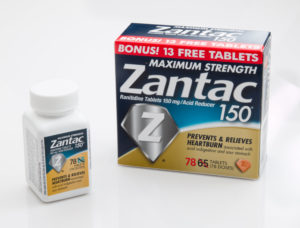Care coordination complicated by OIG ruling, EHR vendor says
Care coordination is the victim of a recent opinion issued by the U.S. Department of Health and Human Services Office of Inspector General (OIG), according to electronic health record (EHR) system vendor athenahealth.
The April 8 opinion relates to athenahealth’s health information exchange (HIE) service, which allows doctors who use the company’s EHR to communicate and conduct business directly with other entities, such as laboratories, pharmacies and imaging centers. The OIG said that the company’s fee structure for the service potentially violates federal anti-kickback statutes because it gives discounts to users of its EHR and also charges all parties participating in a data transaction.
The opinion, made at the request of a laboratory doing business with athenahealth, reverses one the OIG had issued in 2011 at the request of the EHR company. In terminating its original ruling, the OIG said that the factors cited in its earlier decision no longer “mitigate against the risk that the discount could be an improper payment to induce referrals of federal healthcare program business, particularly in the context of high-volume services, such as laboratory tests.”
In a blog post, athenahealth Executive Vice President and COO Ed Park said that the company applied an “in-network/out-of-network” model to the fee structure, much as banks do for ATMs, charging customers less than those who aren’t customers. The company is “disappointed” that the OIG changed its mind about the appropriateness of the arrangement, Park added. “It’s a setback for one of the few bipartisan objectives of health care reform: care coordination,” he wrote.
Athenahealth’s national network includes more than 50,000 physicians and 3,000 labs, pharmacies, imaging centers and other entities that share data, Park said. The company recently added physicians using Epocrates to its mix, too.
“We will continue to work by every lawful means with innovative officials, providers, and industry colleagues to advance health care toward a fully modern data economy where a sustainable and fair economic model enables data to flow freely to improve outcomes and lower costs,” he pledged.
Additional resources:
OIG termination of 2011 opinion.
I Advance Senior Care is the industry-leading source for practical, in-depth, business-building, and resident care information for owners, executives, administrators, and directors of nursing at assisted living communities, skilled nursing facilities, post-acute facilities, and continuing care retirement communities. The I Advance Senior Care editorial team and industry experts provide market analysis, strategic direction, policy commentary, clinical best-practices, business management, and technology breakthroughs.
I Advance Senior Care is part of the Institute for the Advancement of Senior Care and published by Plain-English Health Care.
Related Articles
Topics: Executive Leadership , Regulatory Compliance










